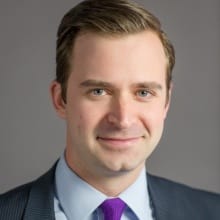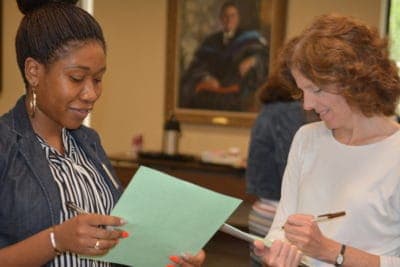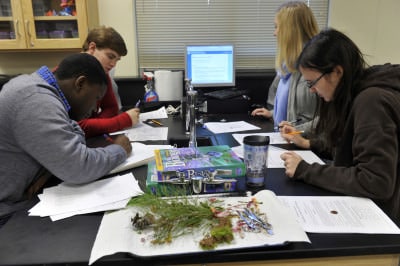By the end of the panel discussion inside a West Charlotte middle school gym, one veteran teacher sitting in the metal folding chairs was starting to get a little frustrated.
“I’m just gonna get down to brass tacks,” she began, “if you guys are back here in a year, what will you have accomplished? What will you have done for us?”
Her questions came after teachers, administrators, and politicians talked for 90 minutes about the urgent need to boost the teachers—in Charlotte-Mecklenburg Schools, North Carolina, and the nation. The panel discussion is sponsored by TeachStrong, a national coalition urging policymakers at the local, state, and federal levels to “modernize and elevate the teaching profession.”
It’s a bold goal that will take significant political will at all levels of government.
But participants said our nation is facing a teacher crisis.
“How are we going to be a leader in technology and innovation and 21st Century opportunities if we can’t find math teachers for our classrooms?,” asked Charlotte Mayor Jennifer Roberts.
That the panel discussion is at Ranson Middle School is no accident. Ranson is a Title I school that performs well on student growth metrics—in the top percentile statewide—but one that struggles to recruit and retain educators. In a recent faculty survey 11 percent of Ranson’s teachers said they believed they were compensated fairly. “I honestly feel conflicted,” Erica Jordan-Thomas, the school’s principal, told the group. “I cannot keep great people in front of kids.”
TeachStrong’s platform includes nine goals:
Identifying and recruiting more teacher candidates who have great potential to succeed, with a deliberate emphasis on diversifying the teacher workforce
Reimagining teacher preparation to make it more rooted in classroom practice and a professional knowledge base, with universal high standards for all candidates
Raising the bar for licensure so it is a meaningful measure of readiness-to-teach
Increasing compensation in order to attract and reward teachers as professionals
Providing support for new teachers through induction or residency programs
Ensuring tenure is a meaningful signal of professional accomplishment
Providing significantly more time, tools, and support for teachers to succeed—including through planning, collaboration, and development
Designing professional learning to better address student and teacher needs and to foster feedback and improvement
Creating career pathways that give teachers opportunities to lead and grow professionally
Legislative action
The panelists at Ranson focused on some of the things they feel most acutely, including teacher pay, training, and professional growth.
“Let’s talk about the elephant in the room,” said Rep. Craig Horn (R-Union), who chairs the House committees on K-12 education and education appropriations.
“Teacher pay is terrible.”
Raising teacher salaries, Horn said, “broadens the pool of candidates, and it certainly sends a message to the value of being a teacher.” Horn said he wants to figure out a way to replicate the efforts of CMS’ Project LIFT initiative, which includes competitive salaries for teachers, statewide.
But he said the General Assembly must do more than simply pay teachers extra money. In particular, Horn wants to see action on improving professional development for teachers and doing a better job training and retraining teachers on the digital world. “Digital education is not just shoving a textbook into a laptop, although there are some legislators who think that is the case,” he said.
Grooming teachers
The event included a discussion among current and former CMS educators, who said they are hopeful policymakers will act on TeachStrong’s agenda.
“If we’re talking about elevating the teaching profession, we first have to acknowledge that the last 15 years were about denigrating the teaching profession,” said Erlene Lyde, a 34-year veteran in the classroom and president of the Charlotte-Mecklenburg Association of Educators. “If you don’t admit that first, we can’t move forward.”
Teachers say they are especially interested in the notion of creating a true professional pipeline—giving educators opportunities to grow their careers like their peers who work in other industries.
Erin Burns, a biology multi-classroom leader at West Charlotte High School, is in a hybrid role created by Opportunity Culture funding. She works with more than 500 students and other teachers in her school, and is paid a higher salary for the additional responsibilities. “It was this stepping stone on a career ladder that I didn’t know existed before,” she said.
A first step
The veteran teacher, the one who stood from the audience to ask her question, had heard all this discussion and—while it all sounded great, she said—wanted to know when to expect action.
“The first step is getting on the agenda,” said Lisette Partelow, director of teacher policy at the Washington think-tank Center for American Progress. “This isn’t solely a communications campaign, though. We will have meaningful policy actions. We have to raise awareness first.”
Another educator, the music teacher at Ranson Middle, rose from her chair and looked around at the crowd of 50. “As a musician, I see this room and I see the choir,” she said. “We have to preach beyond the choir.”




